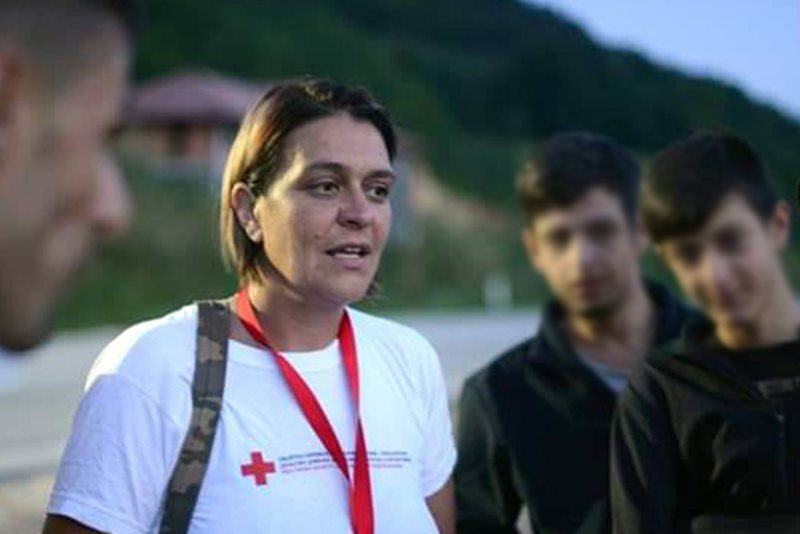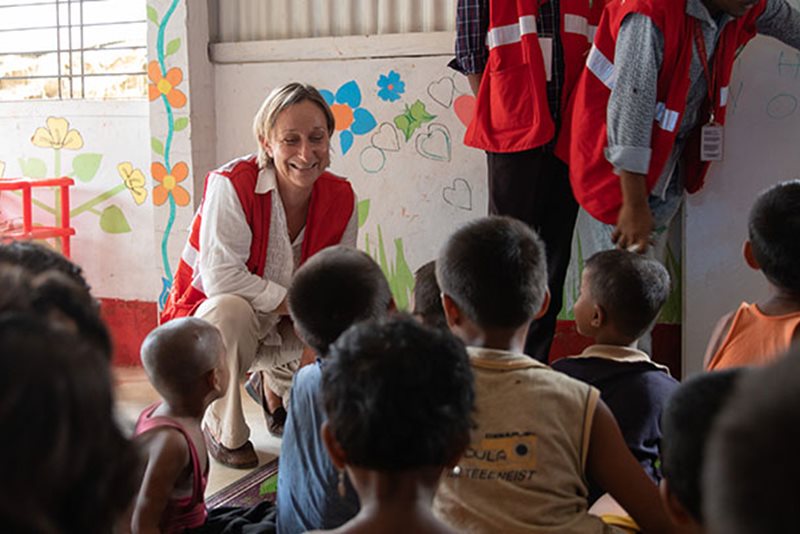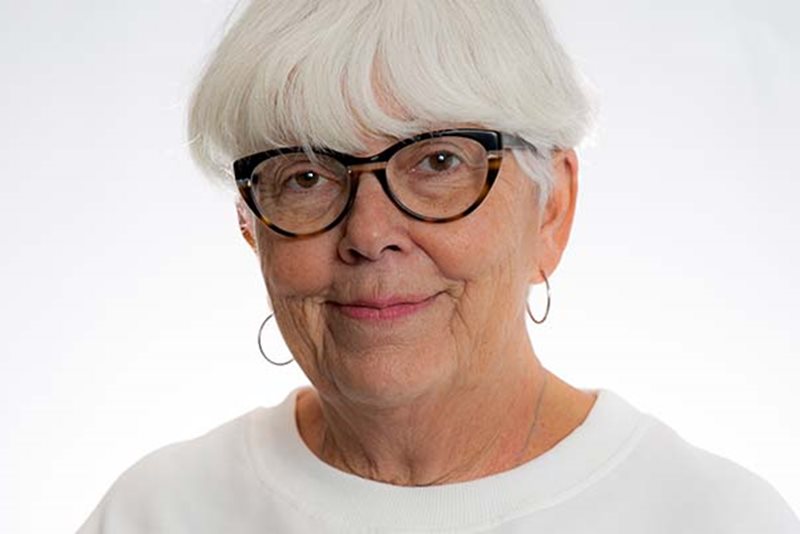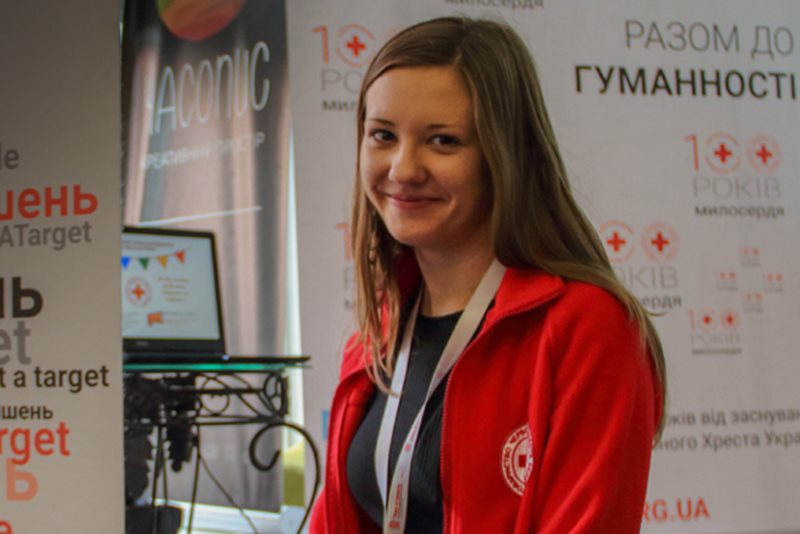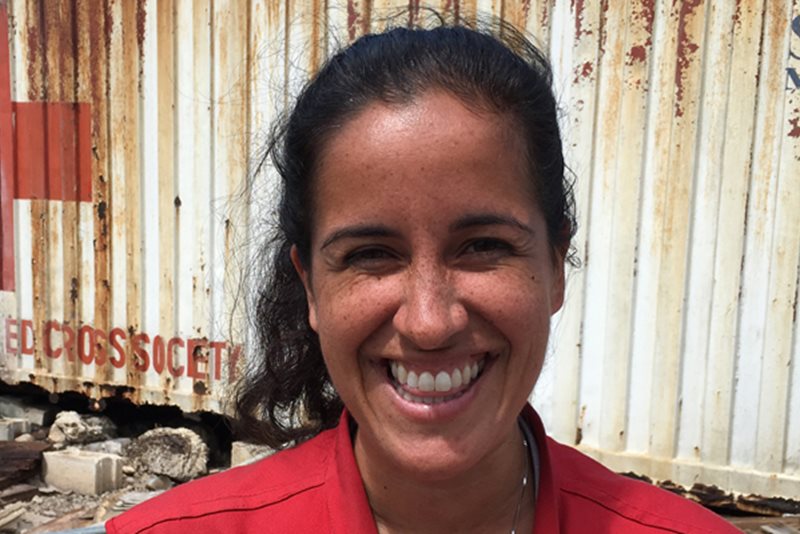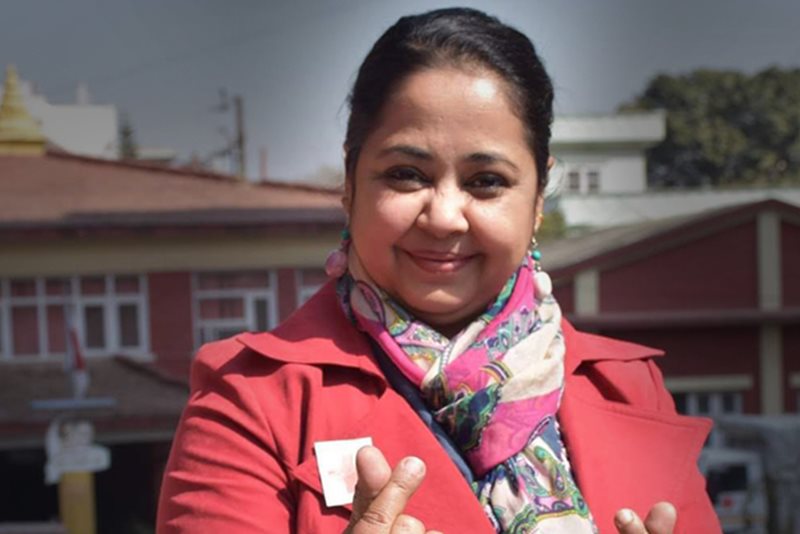

Before I joined the Red Cross Red Crescent Movement (the Movement), I used to work in the private sector in project development. I worked closely with communities, but after I joined the Movement, I realised how different it was. I already knew everything about project design, community development and how to engage with communities but the Movement made me realise that now, I am the community. Working closely with National Societies makes you feel that you are part of the community, that you are not just an outsider providing support. Also, being in the Movement helped me to see how we are the only organisations that always go the last mile. Witnessing how our volunteers, who sometimes live in the worst conditions, still use their time and energy for the service of humanity within the RCRC has been life-changing for me.
Coming from the private sector, this was a new and different way for me to see the world. For example, when we were responding to Hurricane Eta and Iota in 2020, we did a participatory evaluation video with different communities in Guatemala and Honduras. Each community produced their own video; they were the ones who decided on the topic, they wrote the script and acted in the videos. The only role we had was to provide them with technical support for video production. We were mere observers. These were indigenous communities; communities who did not even have a smart phone. We gave them tablets and it was intuitive for them. They immediately figured out how to use the tablet and produce the video. It was an amazing experience. I am honoured and grateful to be a part of this experience. Here is a behind-the-scenes video showing the work that was done.
– Diana Medina, IFRC”To me, a great leader does not depend on what gender they are”
Throughout my experience, I have realised that we, as women, need to work twice as much to prove that we are able and capable. For Gender Equality, there have been projects aiming to increase the number of women in leadership. While I understand why such projects exist, I think the focus needs to shift. As humanitarians, we should be honouring capacity and humanity in people regardless of their gender. I believe these projects should focus on highlighting the qualities that a great woman leader and a great man leader possess, and to combine those qualities together to formulate the basis of what a great leader should be. To me, a great leader does not depend on what gender they are. Being more gender neutral in our approach to leadership is something I would like to promote more. I never position myself as a “woman leader”. I am a person, and I am a leader. I would like to walk this path of being gender neutral as a person and as a manager.
There have been great efforts to improve diversity and inclusion. The work of GLOW Red is amazing, and the impact of the resolution they put together in the International RCRC conference has greatly improved our approach to diversity and inclusion. Also, another improvement we are doing to advance Gender Equality can be seen in the importance we are giving to collecting data about the number of women in the Movement. This gives us a baseline and directs us towards what we need to next. There is still a lot of work to do especially in opening space for women, in being more transparent on what we wish to do and achieve for Gender Equality, and in the positions that we want women to hold in the Movement.
– Diana Medina, IFRC”We talk about the importance of having more women deployed, but for that to happen, we need to make certain necessities available”
My first deployment in an emergency operation was in Ecuador for the earthquake response in 2016. It was really difficult because being a woman in an emergency setting where you do not have toilet facilities to change your hygiene pad is not easy. We talk about the importance of having more women deployed, but for that to happen, we need to make certain necessities available for women to ensure that women can be deployed. Another thing that needs to be taken into consideration is ensuring that the woman deployed can contact her family so she can leave them behind without constantly worrying. We need to make sure that certain things are available on the ground for women being deployed especially if the women are in the age group that menstruates. These types of conversations need to be had and it is why is important that there are women in the team because sometimes, these are the types of things that men may forget to consider. Besides toilet facilities, pads are important. Menstrual hygiene is essential for women’s health. This can be very challenging for young volunteers because may not be used to conditions where this is not available and may not know what the conditions are like. In the midst of destruction caused by natural disasters, it is important that we set up camps for volunteers with special attention to their needs.
I have noticed that many people believe that a leader has to be strong and decisive. I, as a leader, prefer to let my team lead. They are the protagonists and I am there to support them. If you are a woman, this kind of leadership can be misunderstood. You can see many women in leadership who have had to take on this strong approach so that they can avoid being labelled. It is very challenging to have people understand that even though I do not micromanage, I can still lead people successfully. I have had staff write to me after we parted ways because she was very grateful that I had opened up opportunities for her because I had empowered her by allowing her to grow. This taught me an important lesson: as a manager or leader, it is my job to help people see opportunities beyond their imagination and to open their horizons. The main challenge for women in leadership positions is having to constantly fight against the stereotypes about women in leadership.
To achieve Gender Equality, we have to learn from our experience and the experience of other humanitarian organisations. We should learn from National Societies, many of whom now have women in leadership positions. We should have volunteers learn about leadership through providing training opportunities. It is also important for people to understand their role in making change happen. For me, my role is trying to promote the idea of a better quality of leadership that does not depend on gender. The distinction that we make when we say “I am a man leader” or “I am a woman leader” is the main reason why we have discrimination against genders. I would like to see a world where we are not separated by gender, where we are all treated on the basis that we are human, with all the different meanings this word carries.

Analysis shows that women’s jobs are 1.8 times more vulnerable during the coronavirus pandemic than men’s jobs: Women make up 39% of global employment but account for 54% of overall job losses as of May 2020.



